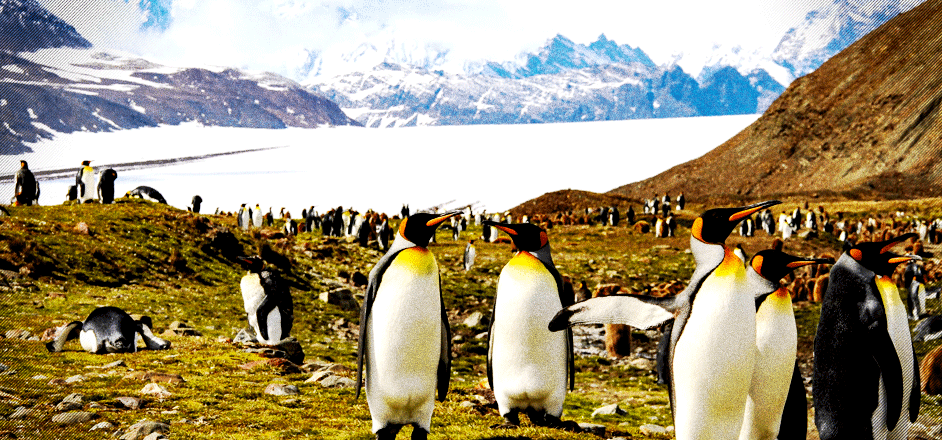Things are not going well for king penguins on planet Earth. The largest breeding population of these flightless birds has already suffered enormously, and soon they may be faced with a challenge that could threaten the survival of their species, new research suggests.
The population of king penguins in question live on the Crozet Prince Edward Islands in the South Indian Ocean. This place is like a penguin Mecca. Some two million breeding pairs of the creatures mate and roost on these islands, raising their chicks, and taking turns hunting for food.
Thing is, that food is concentrated at the “Antarctic Polar Front”, between 186 and 310 miles from the Crozet Islands. At the polar front insane quantities of fish converge in a small area of ocean, making for a rich hunting ground. Unfortunately for king penguins, it often takes months of swimming through frigid waters to arrive at – months just to get a single meal.
A lot of people won’t even drive down the block to pick up groceries, even if they really need them. If the nearest source of food was months away, and required swimming hundreds of miles across dangerous oceans, most of humanity would starve to death.
Simply put: these penguins undergo insane challenges for a beakful of raw fish (watch the Planet Earth segment on these birds – no article could do their journey justice). All in an effort to sustain their chicks and extend their species into the future.
But fate has other plans, it seems. As climate change worsens the Antarctic Polar Front is moving away from the Crozet Islands. Meaning that penguins must swim further and further to find food for their chicks. Chicks that simply can’t wait that long, who starve to death before mom or dad ever gets home from a food run.
Henri Weimerskirch co-authered a recent paper on these birds, titled, “Massive decline of the world’s largest king penguin colony at Ile aux Cochons, Crozet.” Which used satellite images to measure their declining numbers. Since 1982, this thriving population has shrunk by 88-percent, they found.
Weimerskirch described the situation as, “depressing” in an interview with the Times.
And he’s right – it’s a bummer. Not just for the kings, but for all of life on Earth. Because, the health of these seafaring penguins is a direct reflection of the health of the oceans they hunt in. And when those cute tuxedoed avians start dropping dead in droves, it is not a good sign of what is happening below the surface of the water. Nor is it a hopeful omen for things to come…
“We know that penguin populations will collapse soon,” Céline Le Bohec told The Verge. Le Bohec is an ecologist at the Hubert Curien Multi-disciplinary Institute in France, and co-authored a different study of the same king penguins published in Nature Climate Change. “They are showing us the tip of the iceberg of what is happening in the ecosystems.”
According to Bohoc’s findings, 70-percent of the king penguins (who are still left) will either die off or be forced to relocate in the next 80 years unless drastic steps are taken.
“If no actions aiming at halting or controlling global warming, and the pace of the current human-induced changes – climate change, overfishing – stay the same, the species may disappear in the near future,” she told the Guardian.
Dead penguins might soon litter the once flourishing, penguin-packed Crozet Islands – their bloated black-and-white bodies scattered along those stony beaches like plumed soccer balls.
Of course, the penguins could move to other islands, couldn’t they? They could find new homes on other islands closer to their food source, right? They don’t have to die, do they??
Well, no. To all of those questions. They do not have to die, but they also don’t have a lot of real estate options down there in the frigid southern seas. Sanctuaries like the Crozet Islands, that can sustain millions of breeding pairs of king penguins are few and far between. They don’t really have much of anywhere to go to…
Which leaves an eerie and somewhat forsaken vibe hanging over this situation, and the king penguins of the Crozet Islands. A damnation that seems inescapable.
And one that we are largely responsible for.



Leave a Reply